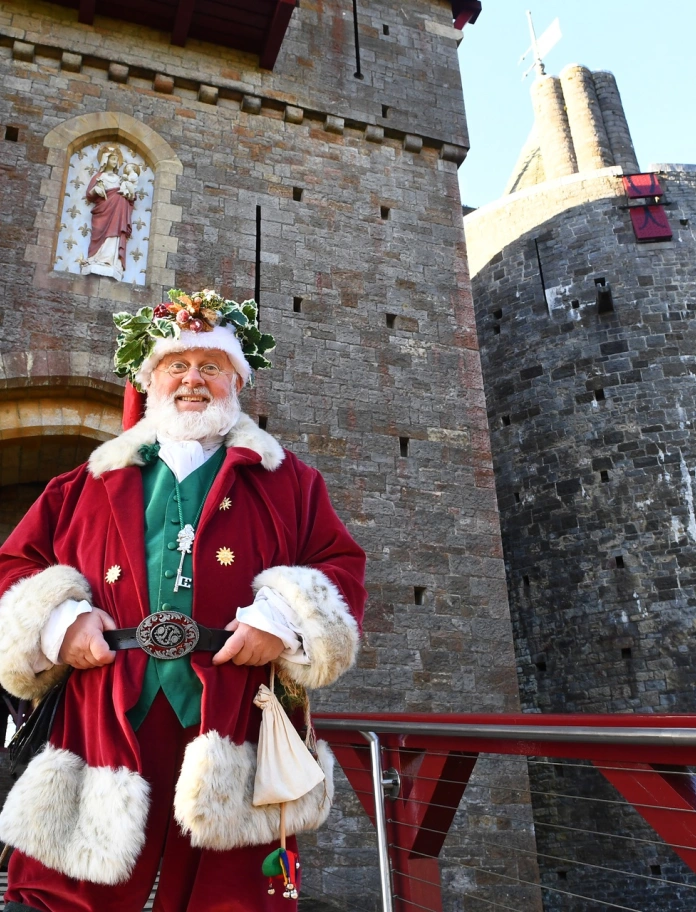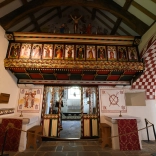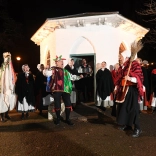Christmas is a time for family, food and, inevitably, presents.
The person responsible for delivering these gifts to well-behaved children is known by a number of names around the world, be it Father Christmas, Santa Claus or Ziemassvētku vecītis (as they say in Latvia).
We Welsh have our own special version of the man with the white beard and big sack, Siôn Corn. The name translates as “Chimney Pot John” or “John Stack” – as in corn simne (chimney stack), referencing the way he enters homes via the chimney.
Mr Corn has been around for a long time. His first appearance in literature is believed to have been in the 1922 poetry anthology Cerddi Huw Puw by John Glyn Davies. In it, Siôn Corn is described as a “benevolent spook”, who resides up the chimney in comfortable living quarters. According to the book, Mr Corn ensures that children go to bed early throughout the year by rewarding those who do with presents at Christmas time.
The name “Siôn Corn” was further popularised when it appeared in the first edition of the landmark Welsh children’s publication Llyfr Mawr y Plant in 1931, one of the first Christmas annual-style books written in Welsh. Later editions of the popular annual even included an illustration of the man himself.

Despite Mr Corn’s backstory setting him apart from the wider Father Christmas tradition – who is conventionally said to live in the North Pole, rather than dwell in chimneys – the figure has always overlapped with the more general image of Santa Claus, as Martin Johnes, Professor of Modern History at Swansea University and author of Christmas and the British: A Modern History, explains.
‘Before the Second World War the various English names for Father Christmas were normally used in Welsh,’ says Martin, ‘Indeed, one newspaper article even recommended that his English name shouldn't stop parents from embracing the festive tradition.’
But, by the 1970s, the Welsh name, Siôn Corn, had become firmly cemented into Welsh Christmas culture, taking its place alongside other much-loved Welsh winter traditions like toffee making and sea dipping.
As a result, should you visit Wales during the yuletide season, you might well hear choirs at one of our popular Christmas markets performing the original tune from the 1922 anthology that first made reference to the mysterious festive gift-bringer. It’s a favourite of small children who sing, Pwy sy’n dwad dros y bryn yn ddistaw, ddistaw bach? (Who’s coming quietly over the hill?) The answer, which is shouted with gusto, Siôn Corn!
And if you hear any strange noises coming from up the chimney after dark? Well, you better get yourself to bed right away.





